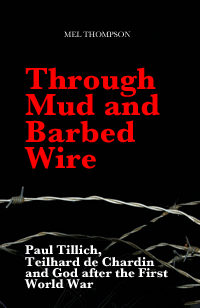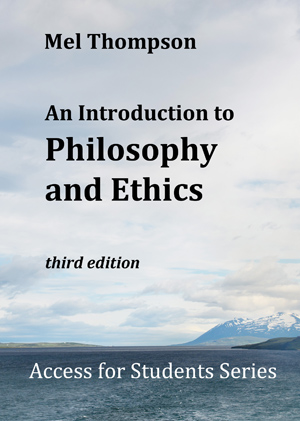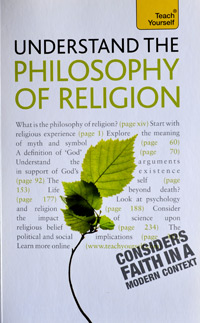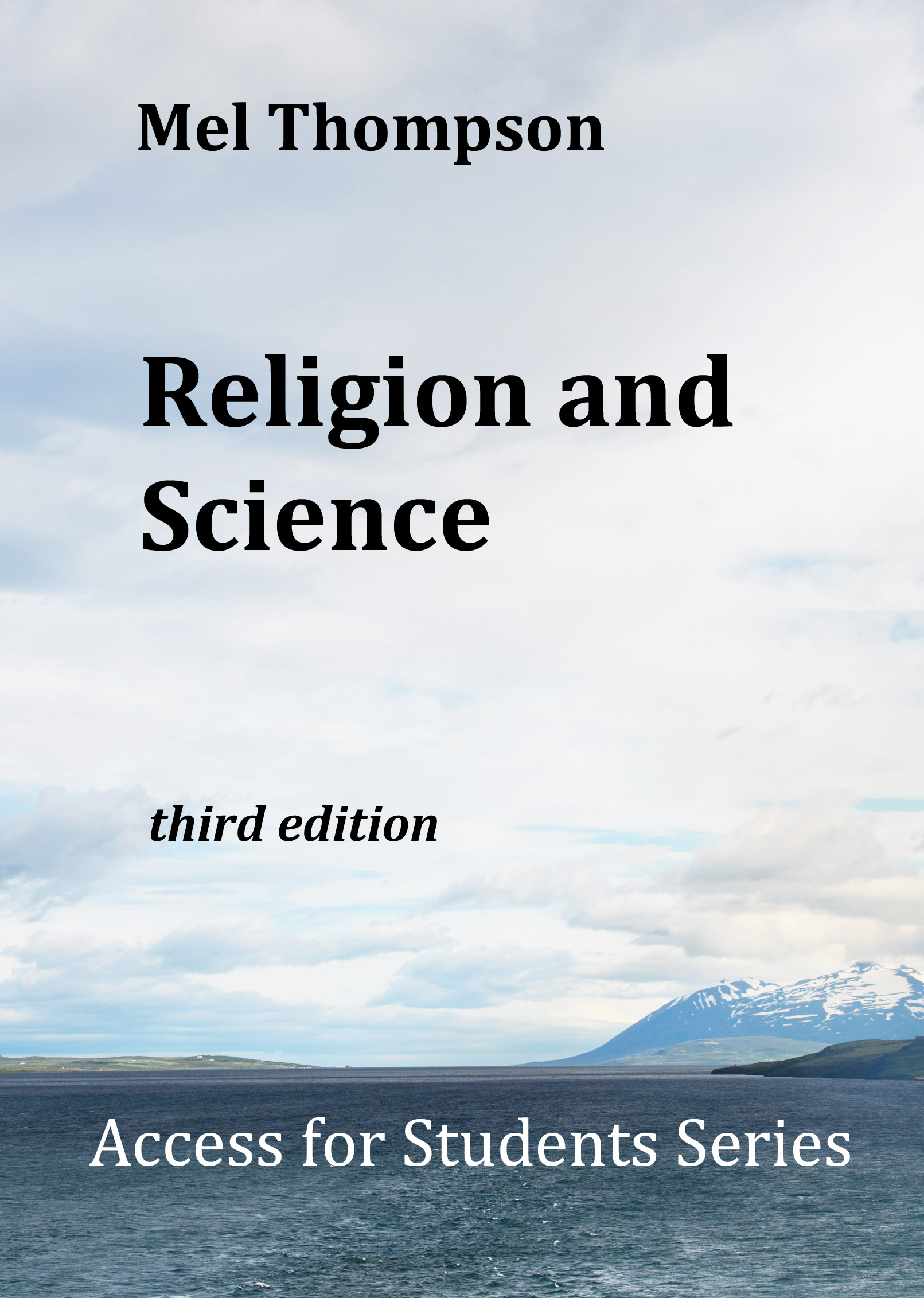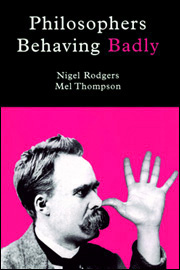The Cosmological Arguments
Contents
Introduction
External impossibility
Ockham’s razor
The Kalam Argument
Balls, hamsters and bent light
Aquinas
Some challenges
Some conclusions
Introduction
The basic of questions: Why is there something rather than nothing?
As we observe the universe, we see that everything that exists depends on something else. Everything comes about because of pre-existing causes and conditions. But what about the universe as a whole? If everything else has a cause, do we assume that it too must have a cause?
Can science give a complete explanation of everything as well as every thing? And would it be enough to show the mechanism by means of which everything came about? Or would you also want to ask ‘Why?’
Clearly, science is very good at giving explanations of things within the universe, but can the universe as a whole have an explanation? (And we’re not talking about the ‘Big Bang’ here – that is a theory to account for the mechanism by which our universe developed in its first moments. It sees time and space as having been created in that event, so it is impossible to ask what came ‘before’ the Big Bang, because – if time only started then – there can have been no ‘before.’).
This is absolutely fundamental to questions about whether there is a creator god, as claimed by the major Western religions. If you believe that there is some sort of reason, cause or first principle that lies behind the universe and is responsible for it – then it is at least possible to consider that cause to be a transcendent God. If not, then the universe is self-contained, and needs no external explanation for its existence.
An ‘external’ impossibility
In science, and by the simple application of logic, an ‘external’ creator is (literally) unthinkable – for once science starts to examine and think about something, it is not longer ‘external’. Logically, an external creator would be a contradiction in terms, because she (or he, or it) would immediately be thought of as part of the universe; as something existing. The universe expands to fit the causes available – i.e. if God created the world, what created God? And so on ad infinitum.
In looking at the cosmological arguments, keep in mind that the relevant question to ask may not be 'Does this prove that God exists?' but 'What sort of "God" does this argument present? Does this argument point to what religion mean by the word "God"?'
Ockham’s razor
William of Ockham (c1290 – 1349) took as a basic principle that: 'Entities are not to be multiplied beyond necessity.'
In other words, when looking for an explanation of something, all you need is something sufficient to explain it and nothing more. Another way of expressing this principle is to say that, where there are a number of possible explanations for something, one should always incline towards the simplest, rather than those that are more complex. That does not mean that causes are always simple, far from it; but you settle for a complex explanation only because the simple ones are inadequate. E.g. If you can’t find something, the first assumption must be that you have mislaid it. Only consider the possibility that secret agents or aliens have targeted your bedroom with a view to expropriating your iPod, once you have eliminated the more likely possibility that you have simply forgotten where you put it. Detectives start with the most obvious explanations for a crime, and the plot only thickens once the obvious is eliminated.
If you conclude that the universe needs some kind of external force to explain it’s existence, all you have is an external force – you don’t end up with a God who is also personal, loving and so on. Such ideas are over and above what is required by way of explanation. So, keep Ockham’s principle in mind: Do we need ‘God’ as an explanation, or is there a simpler one? If God is an explanation (if one is needed) for why the world is, we may still not be justified in ascribing to God qualities other than those required for the purpose of creation.
The Kalam argument
The original ideas that lie behind this argument come from Aristotle but the first to set it out in the form we recognise now were two Muslim philosophers al-Kindi (9th century) and al-Ghazali (1058-1111), in what is knows as the Kalam argument.
The Kalam argument is that, looking back in time, the universe must have a first cause. It may be set out like this:
- Everything that begins to exist has a cause for its existence.
- The universe began to exist.
- Therefore the universe must have a cause.
This argument throws up a very basic question: If you have a sequence of events, each one caused by another that precedes it, stretching back in time - can that sequence be infinite?
Although a theoretical infinity (as used in maths) may seem straightforward, actual infinities cause all sorts of problems. (e.g. Infinity plus one, equals infinity; infinities cannot grow.) Since the time of Aristotle, philosophers have argued that an actual infinity cannot exist. Even if it did, how could you know that something was infinite? It is not the same as being without discernable limit.
You can therefore present the argument like this:
- an actual infinite number cannot exist
- therefore the series of causes for the world being as it is now cannot be an infinite temporal sequence
- so there must be a finite sequence of causes for the world
- therefore the world began to exist at some point in the past and there was a time in the past when one of two states was possible - that there should be, or should not be, a universe.
- 'al-Ghazali argued that when two states of affairs are equally possible the one that comes about must be willed by a personal agent. Hence there must be an agent outside the world itself i.e. God.
Balls, hamsters and bent light
A circle provides an infinite journey, as can the inner or outer surfaces of a sphere. On either surface you have the possibility of infinite movement in all directions without engaging an edge. Watch a hamster running within a Perspex ball! We know the surface is limited in area, but that doesn’t stop the Hamster running on – theoretically for ever, or at least until exhaustion sets it.
So, although we cannot know that a straight line goes on to infinity, and we cannot have an actual infinite number, we can still have the possibility of a finite space that allows an infinite journey.
If light bends under the influence of a gravitational field, then what appears to be a straight line will actually curve and an apparently infinite universe could end up being like the sphere.
These questions need to be explored in commenting on the Kalam argument; they do not necessarily apply in the same way to the arguments from Aquinas that follow.
Thomas Aquinas (1225 - 74)
Probably the most important philosopher of the medieval period, Aquinas sought to reconcile the Christian faith with the philosophy of Aristotle, which had been ‘rediscovered’ and was taught in the secular universities of Europe. He was able to use Aristotle's ideas as an intellectual vehicle for setting down his own religious philosophy
Aquinas’ Five Ways for demonstrating the existence of God could:
1. The argument from an unmoved mover.
2. The argument from an uncaused cause.
3. The argument from possibility and necessity.
4. The argument from degrees of quality.
5. The argument from design.
We are concerned with the first three, which are forms of the cosmological argument - all based on observation of the world, and a reflection on the nature of causality.
The first may be presented like this:
- Everything that moves is moved by something.
- That mover is in turn moved by something else again.
- But this chain of movers cannot be infinite, or movement would not have started in the first place.
- Therefore there must be an unmoved mover, causing movement in everything, without itself actually being moved.
- This unmoved mover is what people understand by 'God'.
Aquinas was not thinking of physical movement, but change – everything changes because of something else (fire causing something potentially hot to become actually hot). But whatever does the changing, must itself be changed by something else. Now, this must stop somewhere, otherwise there will be no first change, and, as a result, no subsequent changes. This first cause of change, itself not changed by anything, is what he understands by God.
The second argument has the same structure:
- Everything has a cause.
- Every cause itself has a cause.
- But, you cannot have an infinite number of causes.
- Therefore there must be an uncaused cause, which causes everything to happen without itself being caused by anything else.
- Such an uncaused cause is what people understand by 'God'.
If you think of this in terms of a sequence going back in a line into the past (which is what the Kalam Argument appears to present) then you not only hit all the problems that the idea of an actually infinite number can cause, but you also run up again the possibility then the series of causes could be circular, or looped in a figure of eight, so that you never arrive at a first cause. Everything might be quite adequately explained by the cause that comes immediately before it.
But this image of circularity does not really help, for it is unlikely that Aquinas was thinking of a series of causes (or movers) stretching into the past. His argument actually suggests a hierarchy of causes here and now. In other words, everything exists because of surrounding causes, but they too exist because of those that, more fundamentally, bring them about… and so on. The causes move outwards, like ripples on a pond into which one throws a stone. Everything that happens has a theoretically infinite number of causes that apply here and now… not a single sequence going back into the past.
The third argument follows from the first two:
- Individual things come into existence and later cease to exist.
- Therefore at one time none of them was in existence.
- But something comes into existence only as a result of something else that already exists.
- Therefore there must be a being whose existence is necessary, and that all would understand to be 'God'.
Everything is only fully understood in terms of the whole. But how is the whole to be understood? That is the cosmological question.
Some challenges to the arguments:
David Hume (1711-1776). All knowledge is based on observation; we generally see cause and effect following one another.
But, in the case of the world as a whole, we have a unique 'effect', and cannot observe its cause. We cannot get 'outside' the world to see both the world and its cause, and thus establish the relationship between them.
Kant (1724-1804) argued that the whole notion of cause and effect was one of the ways (along with the concepts of space and time) in which our minds interpret the world - we cannot help but impose causality upon our experience. If Kant is right, then an uncaused cause is a mental impossibility.
There are philosophers who therefore claim that we simply cannot speak meaningfully about what is ‘outside’ the universe. Bertrand Russell made the point that the world is ‘simply there’ and that there is nothing more that can be said. Wittgenstein (in his early work, Tractatus) argued that ‘the World is all that is the case’ and concluded that ‘Whereof we cannot speak, thereof we must remain silent.’ In other words, our language is suited to speaking about the ordinary things that exist in the world, but we cannot speak about the world ‘as a whole’. Problems arise when ‘God’ is spoken of as if he were one thing among others, imagined as some ‘thing’ that might or might not exist.'God' is a concept that has suffered from being visually conceptualised and therefore 'placed' within the universe in a way that is quite inappropriate.
In other words, our conceptual ability is limited to the picturing of actual entities. We can develop concepts that get beyond those conceptual limitations - e.g. a theoretical infinity - but when we try to integrate them into the rest of our thinking, we have to take great care.
The argument may not be sound, but it points to the sort of reality that a religious person is thinking about when he or she uses the word 'God' - not a particular thing within (or, imaginatively, outside) the universe, but a reality that underlies and sustains everything. It guards against the idea of a limited ‘God’.
Aquinas was well aware of the possibility of taking this sort of argument in a crude way, and he was at pains to guard against using the argument to defend a simplistic idea of God. (In Summa Theologiae Bk I ch 1 section 2:2), just before introducing the 5 ways, he says of the arguments that he is about to produce:
... any effect of a cause demonstrates that its cause exists: it could not occur unless its cause first existed. In such proofs the central link is not what the cause is (since we cannot even ask what a thing is until we know that it exists) but what the name of the cause is used to mean; and, as we shall see, what the word God means derives from his effects. God's effects then are enough to prove that God exists, even if they are not enough to help us comprehend what he is.
So Aquinas never intended that his arguments should be used to define ‘God’, merely to illustrate the existence of something to which that word could be applied.
Some conclusions
The Cosmological arguments cannot prove that there is a God who is the uncaused cause or unmoved mover - for (as Hume or Kant would readily show) that is beyond the possibility of human reason. However, they do point towards the sort of reality that a religious person is thinking about when he or she uses the word ‘God’ - not a particular thing within (or, imaginatively, outside) the universe, but a reality that underlies and sustains everything. Not one cause among the myriads of others that determine every event, but that which lies within and yet beyond all of them.
In my view, the Cosmological arguments are useful because they don’t work! Even if they were shown to be logically sound and compellingly convincing, all they could achieve would be a universal acceptance of the idea that, beyond particular causality, there is some overall cause for the universe. And that (following Ockham’s razor) is all. They would not, in themselves, be able to show the existence of a person loving, or intelligent deity, and certainly not one who might selectively interfere with the workings of the world. In other words they can’t prove the existence of the sort of ‘God’ that most religious people believe in.
Of course, on the positive side, they can illustrate one aspect of what people mean by the word ‘God’ – namely that he is the creator. The arguments are therefore valuable simply because they illustrate the limits of what we can know and our natural human desire to push beyond them. They say, in effect, “this is the sort of thing I mean when I refer to ‘God’, something I discover within and yet beyond the whole world.”
They also protect against a narrow fundamentalism that defines ‘God’ in human terms and gives him a selective role in the world, promoting and supporting those who believe in him, and condemning those who do not. The narrowness of that sort of ‘God’ is blown away by the cosmological approach.
© Mel Thompson, 2015


